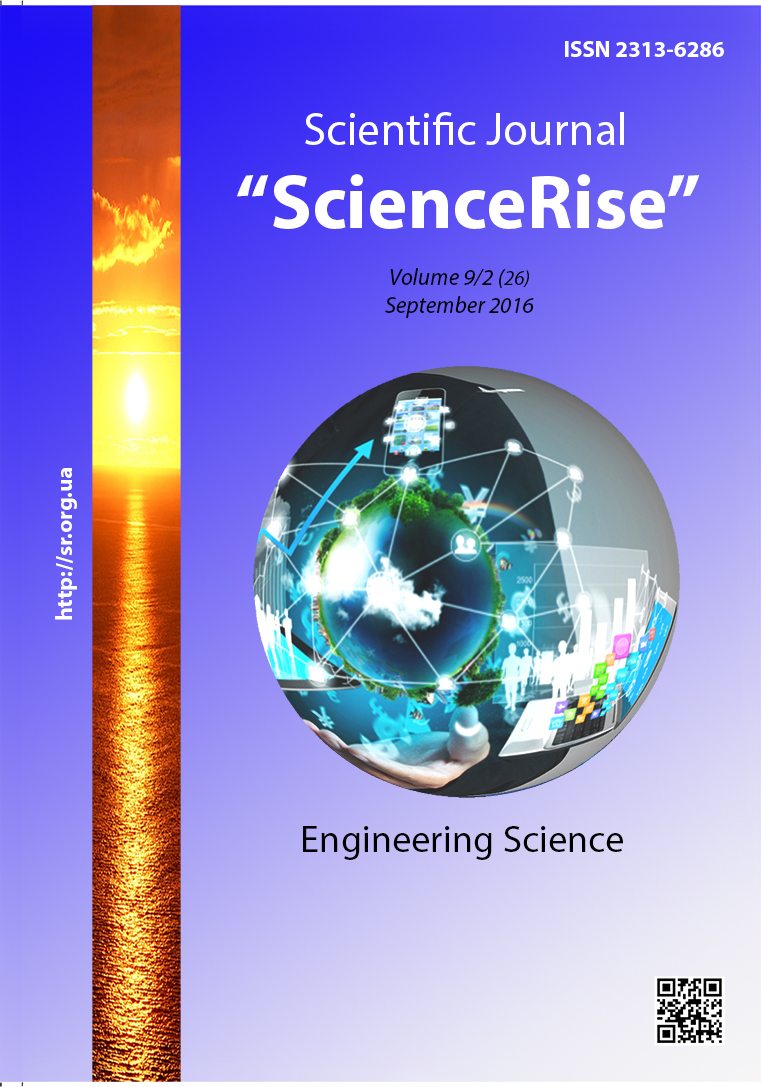Topological situational analysis and synthesis of strategies of object management in the conditions of conflict, uncertainty of behaviour and varible amount of the observed objects
DOI:
https://doi.org/10.15587/2313-8416.2016.78581Keywords:
conflict, object, observation space, conception, axiom, intellectual management system, modelAbstract
The conflict of cooperation of objects is considered in observation space as integral phenomenon with the certain variety of types of connections between its elements, objects, systems and environment that erected in a single theoretical conception and comprehensively and deeply determine the real features of object of researches. Methodology of system-structural analysis of conflict is used as research of the phenomenon in the whole and system-functional analysis as research with the aim of determination of all basic intercommunications with an environment
References
Berzh, K. (1961). Obshhaja teorija igr neskol'kih lic. Moscow: Fizmatgiz, 126.
Kas'janov, V. A. (2007). Sub’ektivnyj analiz. Kyiv: NAU, 512.
Pavlov, V. V. (1982). Konflikty v tehnicheskih sistemah. Kyiv: Vishha shkola, 184.
Pavlov, V. V. (1975). Nachala teorii jergaticheskih sistem. Kyiv: Nauk. dumka, 240.
Semko, V. V., Pavlov, V. V. (1989). Primenenie metoda integral'nogo usechenija variantov pri sinteze strategij upravlenija podvizhnym ob’ektom. Kibernetika i vychislitel'naja tehnika, 84, 1–6.
Semko, V. V. (1989). Avtomatizacija upravlenija podvizhnym ob’ektom v uslovijah konflikta. Modelirovanie v obespechenii bezopasnosti poletov. Kiev: KIIGA, 67–73.
Semko, V. V., Pavlova, V. V. (1985). Primenenie teorii konflikta v zadache predotvrashhenija stolknovenij vozdushnyh sudov. Metody i sredstva ocenki urovnja bezopasnosti poletov grazhdanskih vozdushnyh sudov. Kiev: KIIGA, 97–102.
Semko, V. V. (2012). Model' konfliktu vzajemodii' ob’jektiv kibernetychnogo prostoru. Problemy informatyzacii' ta upravlinnja, 2 (38), 88–92.
Semko, V. V. (2015). Vyrishennja zadachi konfliktu za metodom integral'nogo usikannja variantiv. Telekomunikacijni ta informacijni tehnologii', 2, 40–50.
Semko, V. V. (2013). Model' vzajemodii' kibernetychnyh organizmiv ta syntez strategij optymal'nogo keruvannja v kibernetychnomu prostori. Problemy informatyzacii' ta upravlinnja, 3 (43), 75–82.
Semko, V. V., Semko, O. V. (2014). Doslidzhennja vlastyvostej rishennja zadachi konfliktu za metodom integral'nogo usikannja variantiv. Problemy informatyzacii' ta upravlinnja, 2 (46), 60–71.
Semko, V. V. (2015). Vykorystannja metodu integral'nogo usikannja variantiv pry vyrishenni zadach konfliktu vzajemodii' ob’jektiv v prostori sposterezhennja. Telekomunikacijni ta informacijni tehnologii', 1, 59–66.
Krasovskij, N. N., Subbotin, A. I. (1974). Pozicionnye differencial'nye igry. Moscow: Nauka, 456.
Pontrjagin, L. S., Boltjanskij, V. V., Gamkrelidze, R. V., Mishhenko, E. F. (1983). Matematicheskaja teorija optimal'nyh processov. Moscow: Nauka, 393.
Pshenichnyj, B. N., Ostapenko, V. V. (1991). Differencial'nye igry. Kyiv: Nauk. dumka, 264.
Kuncevich, V. M. (2006). Upravlenie v uslovijah neopredelennosti: garantirovannye rezul'taty v zadachah upravlenija i identifikacii. Kyiv: Nauk. dumka, 264.
Chikrij, A. A. (1992). Konfliktno upravljaemye processy. Kyiv: Nauk. dumka, 382.
Pavlov, V. V. (1975). Invariantnost' i avtonomnost' nelinejnyh sistem upravlenija. Kyiv: Nauk. dumka, 272.
Pospelov, D. A. (1986). Situacionnoe upravlenie: teorija i praktika. Moscow: Nauka, 288.
Pospelov, D. A., Pushkin, V. N. (1972). Myshlenie i avtomaty. Moscow: Sov. radio, 226.
Downloads
Published
Issue
Section
License
Copyright (c) 2016 Віктор Володимирович Семко

This work is licensed under a Creative Commons Attribution 4.0 International License.
Our journal abides by the Creative Commons CC BY copyright rights and permissions for open access journals.
Authors, who are published in this journal, agree to the following conditions:
1. The authors reserve the right to authorship of the work and pass the first publication right of this work to the journal under the terms of a Creative Commons CC BY, which allows others to freely distribute the published research with the obligatory reference to the authors of the original work and the first publication of the work in this journal.
2. The authors have the right to conclude separate supplement agreements that relate to non-exclusive work distribution in the form in which it has been published by the journal (for example, to upload the work to the online storage of the journal or publish it as part of a monograph), provided that the reference to the first publication of the work in this journal is included.

